TNPSC Books
-
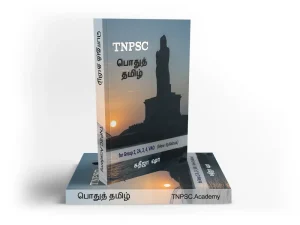 TNPSC பொதுத் தமிழ் Book - for Group 2, 2A, 3, 4 & VAO
TNPSC பொதுத் தமிழ் Book - for Group 2, 2A, 3, 4 & VAO
₹1,000.00Original price was: ₹1,000.00.₹850.00Current price is: ₹850.00. -
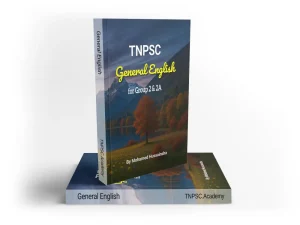 TNPSC General English Book - for Group 2 & 2A
TNPSC General English Book - for Group 2 & 2A
₹1,000.00Original price was: ₹1,000.00.₹850.00Current price is: ₹850.00.
Group 1 Courses
Group 1 | Postal and Online Test Series | 2022
₹3,200.00Original price was: ₹3,200.00.₹2,800.00Current price is: ₹2,800.00. 88TNPSC Group 1 - Test Series - 2019
4.7₹3,500.00Original price was: ₹3,500.00.₹2,800.00Current price is: ₹2,800.00. 541
Group 2 & 2A Courses
TNPSC Group 2 and 2A - Test Series - 2019
₹2,400.00Original price was: ₹2,400.00.₹1,800.00Current price is: ₹1,800.00. 527TNPSC Group 2 and 2A - Test Series - 2019 - தமிழ்
₹2,400.00Original price was: ₹2,400.00.₹1,800.00Current price is: ₹1,800.00. 175
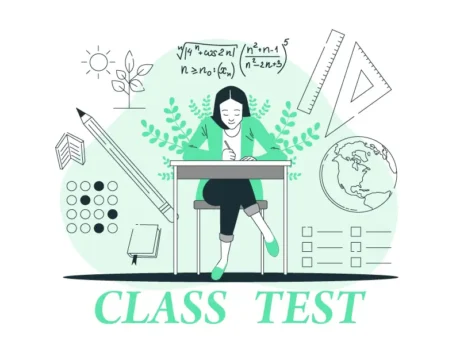
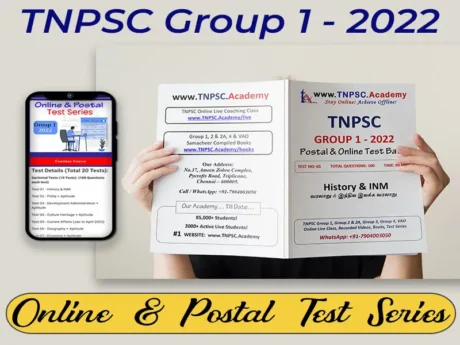

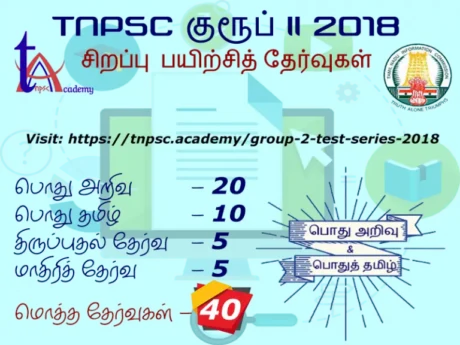
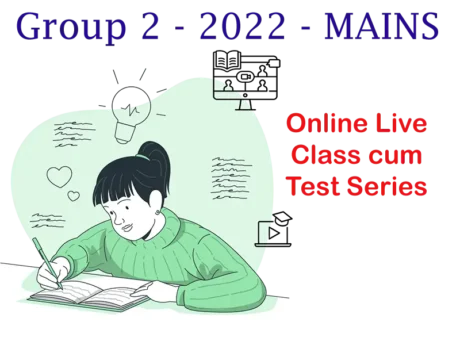
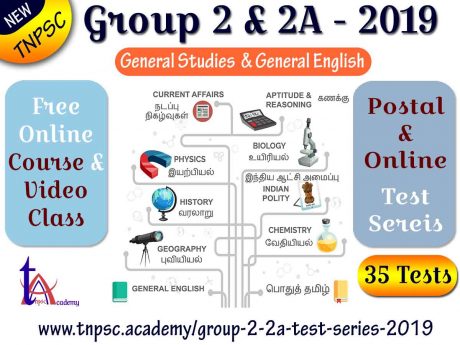
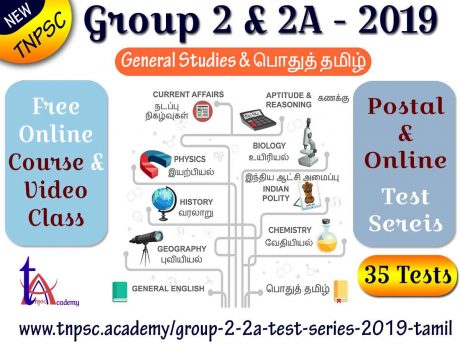
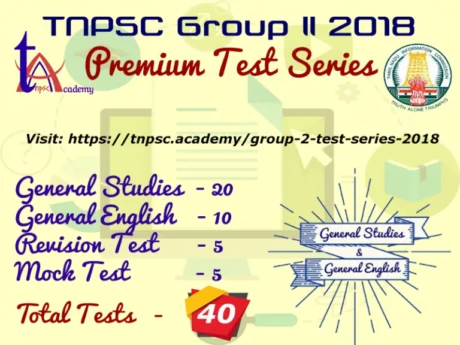
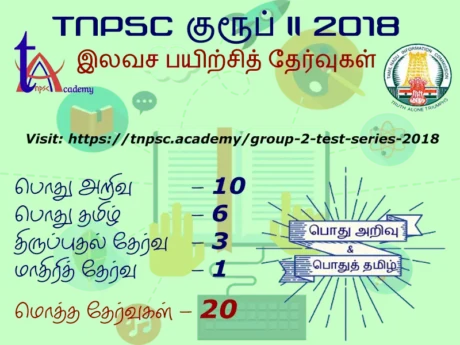
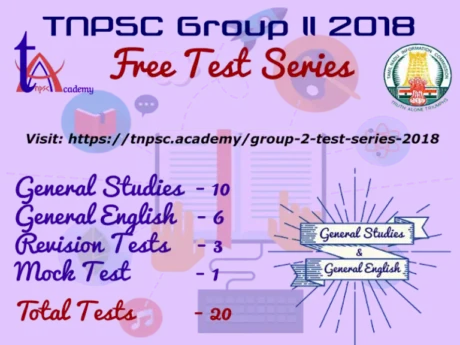
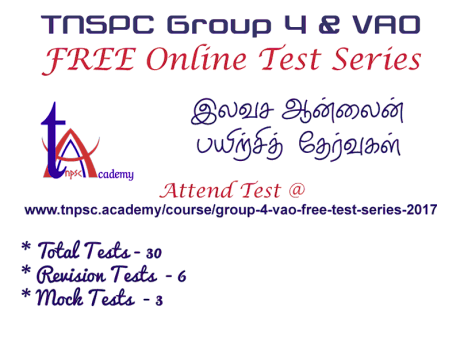
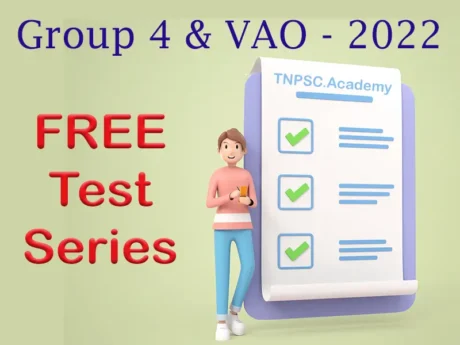
Exercises with Answers
An open letter is a letter that is intended to be read by a wide audience, or a letter intended for an individual, but that is nonetheless widely distributed intentionally through newspapers and other media, such as a letter to the editor or a blog.
Sociologists, scholars, anthropologists and historians have written open letters. Letters patent is another form of open letter in which a legal document conferring a patent or right is mailed to the individual by the government and is also announced publicly. Open letters can also be addressed directly to a group rather than to any individual.
The following is a letter by Nobel Laureate Rabindranath Tagore to Mahatma Gandhi. Read the letter and answer the questions that follow.
Shanti Niketan,
April 12, 1919.
Dear Mahatmaji,
Power in all its forms is irrational — it is like the horse that drags the carriage blindfolded. The moral element in it is only represented in the man who drives the horse. Passive resistance, a force which is not necessarily moral in itself, can be used against truth as well as for it. The danger inherent in all force grows stronger when it is likely to gain success, for then it becomes temptation. I know your teaching is to fight against evil by the help of the good. But such a fight is for heroes and not for men led by impulses of the moment. Evil on one side naturally begets evil on the other, injustice leading to violence and insult to vengefulness. Unfortunately, such a force has already been started, and either through panic or through wrath our authorities have shown us the claws whose sure effect is to drive some of us into the secret path of resentment and others into utter demoralization. In this crisis you, as a great leader of men, have stood among us to proclaim your faith in the ideal which you know to be that of India, the ideal which is both against the cowardliness of hidden revenge and the cowed submissiveness of the terror- stricken…
I have always felt, and said accordingly, that the great gift of freedom can never come to a people through charity. We must win it before we can own it. And India’s opportunity for winning it will come to her when she can prove that she is morally superior to the people who rule her by their right of conquest. Armed with her utter faith in goodness she must stand unabashed before the arrogance that scoffs at the power of spirit. And you have come to your motherland in the time of her need to remind her of her mission, to lead her in the true path of conquest, to purge her present day politics of its feebleness which imagines that it has gained its purpose when it struts in the borrowed feathers of diplomatic dishonesty. This is why I pray most fervently that nothing that tends to weaken our spiritual freedom may intrude into your marching line, that martyrdom for the cause of truth may never degenerate into fanaticism for mere verbal forms, descending into the self-deception that hides itself behind sacred names.
With these few words for an introduction allow me to offer the following as a poet’s contribution to your noble work:
Give me the supreme courage of love,
this is my prayer,
the courage to speak,
to do, to suffer at thy will,
to leave all things or be left alone.
Give me the supreme faith of love,
this is my prayer,
the faith of the life in death,
of the victory in defeat,
of the power hidden in the frailness of beauty,
of the dignity of pain that accepts hurt, but disdains to return it.
Very sincerely yours,
Rabindranath Tagore
Answer the following questions.
1. Who according to Gandhi, can fight against evil and how?
2. What is Gandhiji’s ideal?
3. According to Tagore, when will India get the opportunity to win the gift of freedom?
4. How does Tagore acknowledge Gandhi’s noble work?
5. Find words from the passage which mean the same as the following.
a) a malevolent desire for revenge (para 1)
b) tactful (para 2)
c) despise (para 3)
6. Find words from the passage which are antonyms of the following.
a) artificially (para 1)
b) strength (para 2)
Answers:
1. One can fight against evil with the help of good. Such a fight is led by heroes like Gandhi himself.
2. Gandhi’s ideal is to observe passive resistance against the cowardliness of hidden revenge and the cowed submissiveness of terror.
3. According to Tagore, India’s opportunity of winning freedom will come to her when she can prove that she is morally superior to the people who rule by the right of conquest.
4. Tagore acknowledges the noble work of Gandhi in his poem. He appreciates the moral courage he had instilled in Indians to suffer at his will.
5. a) vengefulness
b) diplomatic
c) disdain
6. a) naturally
b) feebleness
2. Read the following letter carefully and answer the questions.
Sir,
I request you to publish the following letter in your daily to address an important issue which needs immediate redressal.
During week ends motorcyclists are seen racing on the East Coast Road and the Old Mahabalipuram road of Chennai. The amateur racers are risking their own lives and of the public as well. They are fearless and irresponsible, not knowing the price of human lives. Risking others and their lives for their pleasure is highly condemnable.
Even school students indulge in such activities and cause fatal accidents. The racers have started occupying the lanes and streets of busy localities. As such, the violation of traffic rules often results in loss of young lives. Such reckless riders who violate traffic rules should be punished severely.
As a responsible citizen of the society, I request the authorities concerned to take appropriate measures to put an end to this menace.
Yours truly,
Srivatsav
Questions:
1. Who is the sender of the letter?
2. Who is the receiver?
3. What is the issue?
4. What is the request of the sender?
5. Who will take steps after reading it?
Answers:
1. Srivatsav
2. The Editor of the newspaper
3. Racing on the East Coast Road
4. The sender’s request is to put an end to racing in the roads.
5. The traffic police will take steps after reading it.
3. Look at the letter below. There are errors in the letter. Underline the errors and re-write the letter without any errors.
Dear sister,
I was delighted to read you’re letter last week. It’s always a pleasure to recieve the latest news and to here that you had a great time with your family.
Our family two went on a vocation last month. We spend a week at the beach and have much fun on the sand and on the water. But the rains spoil our mood. But luckilly, we had visited many tourist spot before the rains started.
My kids are back to school. There is less things to do now. I had to plan for the next vacation now. Hoping to come up for some creative ideas soon.
Your loving sister
Lakshmi
Answers:
List of Errors:
* “you’re letter” → should be your letter (“you’re” = “you are”; “your” = possession)
* “recieve” → receive (spelling mistake)
* “here” → hear (wrong word — “hear” = listen)
* “Our family two” → should be Our family too (“too” = also)
* “vocation” → vacation (wrong word)
* “spend” → spent (past tense needed)
* “have much fun” → had much fun (past tense needed)
* “spoil” → spoiled (past tense needed)
* “luckilly” → luckily (spelling mistake)
* “tourist spot” → tourist spots (plural needed)
* “less things” → fewer things (“fewer” for countable items like “things”)
* “I had to plan” → better as I have to plan (still planning — present tense)
* Missing commas at natural pauses.
Corrected version:
Dear Sister,
I was delighted to read your letter last week. It’s always a pleasure to receive the latest news and to hear that you had a great time with your family.
Our family too went on a vacation last month. We spent a week at the beach and had much fun on the sand and in the water. However, the rains spoiled our mood. Luckily, we had visited many tourist spots before the rains started.
My kids are back to school. There are fewer things to do now. I have to plan for the next vacation. Hoping to come up with some creative ideas soon.
Your loving sister,
Lakshmi
4. Choose the correct answer with respect to the rules followed while writing a letter.
From,
Sathya,
Gandhi Street,
Madurai.
To,
The Proprietor,
Nizhal Book Shop,
Chennai – 600 001.
Sathya
Gandhi Street
Madurai
15.04.2025
Answer: The correct answer is C. In A and B, “comma” should not come after From/To and also after each address line.